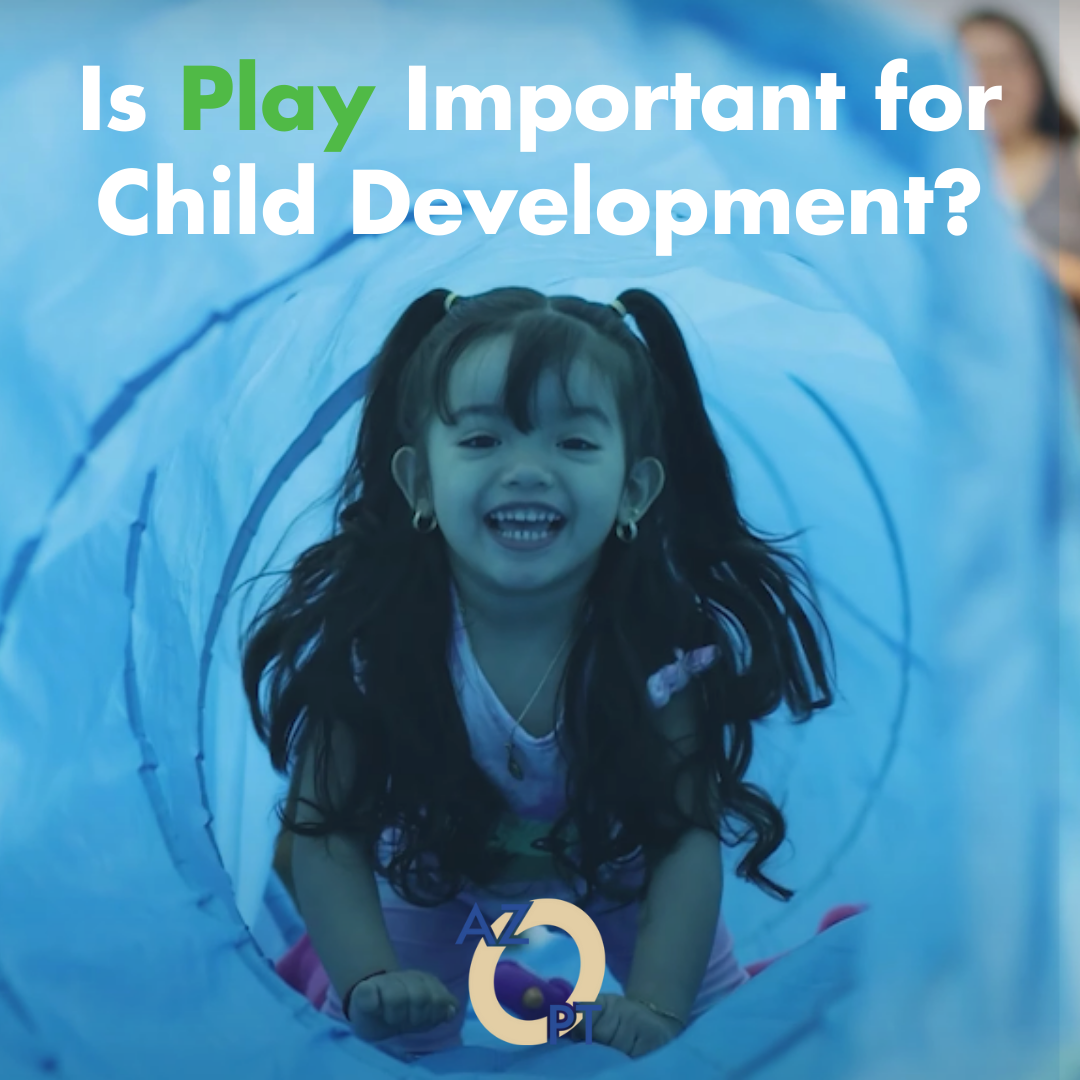Why Is Play Important for Child Development?
We often hear parents ask, “What can I do with my child to help him or her grow and develop?” Now, if someone came to you and said, “Just play with your child” would you believe them?
What Is Play?
According to the American Occupational Therapy Association (2008), play is “any spontaneous or organized activity that provides enjoyment, entertainment, amusement, or diversion.”
Why Is Play Important?
Play promotes physical and mental health, social skills, and emotional well-being (AOTA, 2011). Play is constant and essential for normal development at all stages of life. Play helps infant explore their bodies in space and help coordinate movements. Think of someone that frequently runs into furniture or falls and you will understand why it is important to know where your body is in space. Toddlers begin learning to use their hands through play to awkwardly feed and dress themselves. They experience not getting what they want and start learning how to regulate their emotions. By school age, children should know what it’s like to lose and begin learning sportsmanship and camaraderie. They start refining their skills through play to be well adjusted individuals.
How Can I Help My Child with Play?
The American Occupational Therapy Association recommends that parents engage their children in sensory rich activities that use all of their senses. Encourage manipulative play with puzzles, Legos, and board games to improve eye hand coordination and dexterity. Engage in imaginary or pretend play to nurture their creativity and give opportunities to practice social skills. Choose safe developmentally appropriate toys and give them choices to help with expressing their interests. Playing is more than something that occupies your time, but it is how children learn about themselves and their environment and is crucial for normal development.
What If My Child Doesn’t Play?
Play is important and research shows that children who engage in play regularly perform better in school and develop healthier habits for adulthood (AOTA, 2012). Children that seem to be disinterested in play or appear to not notice their surroundings could further delay play skills resulting in delays reaching milestones. Postponing intervention can further set back important skills learned through play.
Recommended Developmental Play Activities
Infants- Infant swings, noise making toys such as rattles, mobiles, play-mats, toys with contrasting colors, mirrors, teething toys, squeeze toys, cause and effect toys
Toddlers/Preschool Age – ABC blocks, musical toys, playing in sand and water, balls, playing outside, toy cars, books, coloring, stacking toys, peg boards, sorting toys
School-Aged Children– Books, introduction to sports and teams, building toys, bicycles, age appropriate board games, playing outside, swimming
Middle School and Adolescents- Sport/athletics, books, models, crafts, investigate different hobbies, electronics
References:
American Occupational Therapy Association.(2012). Learning Through Play. Retrieved from
http://www.aota.org/media/Corporate/Files/Practice/Children/Browse/Play/Learning%20Through%20Play%20tip%20sheet.pdf
American Occupational Therapy Association. (2011). Building Play Skills For Healthy Children and Families. Retrieved from
http://www.aota.org/~/media/Corporate/Files/AboutOT/consumers/ Youth/Play/Building%20Play%20Skills%20Tip%20Sheet%20Final.ashx
American Occupational Therapy Association. (2008). Occupational therapy practice framework: Domain and process (2nd ed.). American Journal of Occupational Therapy,62,625- 683.







